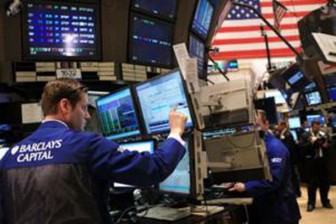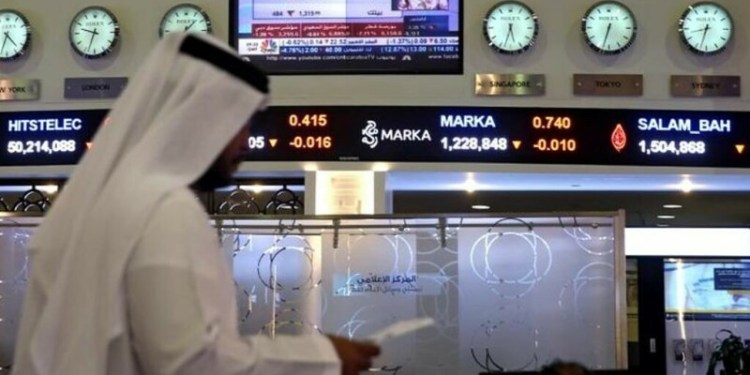 Asian stock markets were mixed Tuesday but Tokyo closed lower after the Bank of Japan announced monetary easing that was only slightly bigger than market forecasts and cut its growth outlook.
Asian stock markets were mixed Tuesday but Tokyo closed lower after the Bank of Japan announced monetary easing that was only slightly bigger than market forecasts and cut its growth outlook.
With US markets closed because of Hurricane Sandy, Wall Street gave regional investors no lead but comments from Spain and Greece revived eurozone concerns.
Tokyo fell 0.98 percent, or 87.36 points, to 8,841.98 while Seoul closed 0.43 percent higher, adding 8.06 points to 1,899.58.
Sydney, which closed before the BoJ announcement, rose 0.20 percent or 8.8 points to 4,485.7.
Hong Kong was 0.38 percent lower, shedding 82.47 points to 21,428.58 but Shanghai gained 0.17 percent, or 3.41 points, to 2,062.35.
Just before the Tokyo market closed the central bank said it would add another 11 trillion yen ($138 billion) to its 80 trillion asset purchase scheme to provide liquidity to the economy and jumpstart growth.
It also said it expected the economy to grow just 1.5 percent in the year to March, instead of the 2.2 percent previously predicted.
Expectations of new easing had sent markets higher in recent weeks, while the yen had suffered a sell-off.
“The vast majority of experts seemed to think that the central bank would go for 10 trillion yen, with a few as far out as 20 trillion yen, so the weighted average probably came out somewhere right around where the BoJ settled,” CLSA equity strategist Nicholas Smith told Dow Jones Newswires.
Despite a similar move last month, Japan’s economy appears unable to emerge from its stupor.
Figures earlier Tuesday showed factory output fell 4.1 percent last month, much worse than the 3.1 percent drop expected, with a slump in production of cars, auto parts and machinery a key cause.
In Greece the finance ministry said banks would not be able to swap greatly devalued holdings of national debt for bonds issued by the new European Stability Mechanism.
The news comes as Athens remains locked in talks with its international creditors over accessing its next tranche of rescue funds, as well as over a possible extension of a timetable to initiate crucial reforms.
Spanish Prime Minister Mariano Rajoy reiterated that his own debt-laden, recession-hit economy does not need a bailout, even as a ninth region made an appeal for rescue funds from Madrid.
The yen clawed back some of its recent losses against the euro and dollar soon after the BoJ’s comments.
And in late Tokyo trade the dollar bought 79.47 yen compared with 79.80 yen in New York late Monday.
The euro bought $1.2945, compared with $1.2900, and 102.88 yen, from 102.95 yen.
CLSA’s Smith said he thought the “dollar-yen was vastly overbought over its recent steep run-up”.
Oil prices were down as Hurricane Sandy forced the shutdown of refineries, roads and airports.
New York’s benchmark oil futures contract, West Texas Intermediate light sweet crude for delivery in December, was down 19 cents to $85.35 a barrel in afternoon trade. Brent North Sea crude for December fell 41 cents to $109.03.
Gold was at $1,714.33 at 0820 GMT compared with $1,712.20 late Monday.
In other markets:
— Taipei rose 1.28 percent, or 90.92 points, to 7,182.59.
— Manila closed 0.54 percent higher, gaining 29.25 points to 5,426.67.
Metropolitan Bank and Trust gained 0.86 percent to 93.65 pesos while Ayala Corp. rose 0.45 percent to 442 pesos.
— Wellington fell 0.25 percent, or 10.01 points, to 3,941.28.
Fletcher Building was down 2.12 percent at NZ$6.92 and Telecom was up 1.68 percent at NZ$2.42.
Source: AFP




























